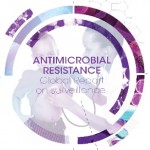Many people are rightly concerned about the spread of coronavirus, or 2019-nCoV, this new virus that causes symptoms similar to the flu. It is spreading rapidly, now in 28 countries and territories around the world, infecting more than 60,000 people as of today. Death rates are climbing. The vast majority of those cases, more than 59,000, are in China. But we wanted to know, can coronavirus be spread through food? At this time, experts say no. There isn't much that is known about this zoonotic virus, which experts think made the jump from animals to people, as also happened with SARS (Severe Acute Respiratory Syndrome) and MERS (Middle East Respiratory System). Viruses can also make the jump from people to animals. It's public health officials' experience with those other … [Read more...]
WHO Recommends Farmers Stop Using Antibiotics to Promote Growth, Prevent Disease
The World Health Organization issued a news release on November 7, 2017, recommending that farmers and the food industry stop using antibiotics routinely to promote growth and prevent disease in healthy animals to help control the development of antibiotic resistance. Antibiotics that are important for human medicine are used in food animals. The effectiveness of antibiotics is reduced when used on farms. In some countries, "approximately 80% of total consumption of medically important antibiotics is in the animal sector, largely for growth promotion in healthy animals," according to the news release. WHO has been campaigning for these actions to help combat antibiotic resistance for years, and has warned that we are close to an age when antibiotics may become ineffective against … [Read more...]
WHO Publishes List of Bacteria That Need New Antibiotics
The World Health Organization (WHO) has published its first ever list of antibiotic-resistant bacteria that pose the greatest threat to human health and which urgently need new types of antibiotics. These bacteria are resistant to some last-resort antibiotics. According to the Centers for Disease Control and Prevention (CDC), antibiotic-resistant bacteria kill 23,000 Americans every year. And antibiotic resistant bacteria are present in every country on earth. The list highlights gram-negative bacteria that are resistant to multiple antibiotics. These pathogens are constantly evolving to resist new drugs, and they can pass genetic material to other bacteria so they can become drug resistant too. Dr. Marie-Paule Kieny, WHO's Assistant Director-General for Health Systems and … [Read more...]
WHO Urges Vigilance in Bird Flu Outbreaks
There have been many outbreaks of avian flu among bird flocks around the world in the last two months. The highly pathogenic H5N8 virus is spreading across Europe and other countries. The World Health Organization is telling countries they must be on the watch for possible human avian flu cases. No human H5N8 cases have been reported so far. But Dr. Caroline Brown, program manager for flu and other respiratory pathogens for the WHO's Regional Office for Europe said that "this does not mean this cannot happen, as experience tells us." The H5N8 threat to humans is "relatively low," but other subtypes have made the jump from birds to humans in the past. At least 24 European countries have reported H5N8 outbreaks since June 2016. More outbreaks have been reported in Asia, the Middle … [Read more...]
WHO Classifies 2,4-D Herbicide as Possible Carcinogen
The Center for Food Safety has announced that the World Health Organization (WHO) has determined that the herbicide 2,4-D, used in Dow Chemical's "Enlist Weed Control System", is "possibly carcinogenic to humans." Enlist corn and soybean seeds are genetically engineered to resist this herbicide, which means it can be sprayed on crops and won't kill them. Enlist is comprised of glyphosate, the chemical used in Roundup, a well-known herbicide, and 2,4-D, which was an ingredient in Agent Orange, an herbicide used during the Vietnam war. Glyphosate has also been determined as "possibly carcinogenic." Andrew Kimbrell, executive director of Center for Food Safety, said in a statement, "this last thing we need is genetically engineered crops that dramatically increase the spraying of … [Read more...]
WHO Finds Glyphosate “Probably Carcinogenic”
In March, scientists organized by the World Health Organization (WHO) found that the herbicide glyphosate, which is an active ingredient in Round-Up, is "probably carcinogenic to humans." Food and Water Watch, along with the Washington Office on Latin America (WOLA) are calling for an end to the U.S. backed program that sprays glyphosate on coca fields in Columbia. Adam Isaacson, senior associate for regional security policy at WOLA said, "there is now proof that the sprayings of glyphosate represent an unacceptable risk to the public. This has critical implications for a program that has been a cornerstone of U.S. drug policy in Colombia." The herbicide has been sprayed over more than 4 million acres in that country over the past 20 years. Glyphosate was considered safe for humans … [Read more...]
World Health Day Stresses Food Safety
Today is World Health Day. The World Health Organization (WHO) is making the centerpiece of this year's celebration food safety. New data on the harm caused by food poisoning stresses the global threat caused by contaminated food. WHO states that there is a need for coordinated, cross-border action across the entire food supply chain. WHO Director-General Dr. Margaret Chan said in a statement, "food production has been industrialized and its trade and distribution have been globalized. These changes introduce multiple new opportunities for food to be contaminated with harmful bacteria, viruses, parasites, or chemicals." Food that is not safe to eat can contain bacteria, viruses, parasites, and chemical substances. Unsafe food can cause more than 200 diseases. WHO is releasing the … [Read more...]
WHO Issues New Report on Antibiotic Resistance
The World Health Organization (WHO) has issued a new report on antibiotic resistance (ABR). It details resistance to antibacterial drugs in different parts of the world, along with resistance data on specific pathogens such as the resistance of E. coli bacteria to third-generation cephalosporins and fluoroquinolones. The report outlines the health and economic burden due to antibiotic resistance and looks specifically at antibiotic resistance in food-producing animals and the food chain. While antibiotic resistance is growing around the world, WHO says there is no coordinated surveillance effort, which could help monitor the situation and provide clues to fix the problem. The report states that, "major gaps exist in surveillance and data sharing related to the emergency of ABR in … [Read more...]
WHO Updates H7N9 Outbreak in China
The World Health Organization updated the status of the avian influenza A (H7N9) virus in China yesterday. The National Health and Family Planning Commission of China notified WHO of an additional fifteen lab-confirmed cases of the virus. Three additional deaths were reported. To date, there are 102 lab confirmed cases, including 20 deaths. Sixty-seven patients are hospitalized and seven have been discharged. There is no evidence of human-to-human transmission so far, even though 40% of the patients had no contact with live poultry. Wild bird sales have been suspended in the country, and a ban on live poultry trading where the illnesses have occurred is in place. The Food and Agriculture Organization of the United Nations released an FAQ on the illness last week. They recommend that … [Read more...]
World Health Organization: Antibiotic Resistance Could ‘End Modern Medicine’
Dr. Margaret Chan, director general of the World Health Organization (WHO) said at a conference in Copenhagen that antibiotic resistance could "end modern medicine as we know it." Her keynote address was given on March 14, 2012. Food Poisoning Bulletin has told you about how the common use of antibiotics in farm animals has created antibiotic-resistant bacteria, that the numbers of foodborne illnesses caused by antibiotic resistance bacteria are increasing, and that the U.S. government has waffled on the issue of restricting their use in animals used for food. Dr. Chan mentioned Denmark's response to this problem as a potential model for other countries. Denmark has a very low domestic antibiotic consumption, and has been proactive in the problem of antibiotic use in … [Read more...]













